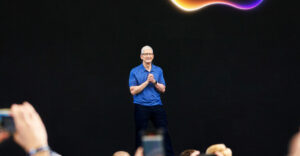
In the month of November, three things happened nearly back-to-back that have had significant effects on the technology landscape. The first was the Sony rootkit fiasco, which may have changed the software arena forever. The second was the acquisition by Cisco of Scientific-Atlanta, in what was likely the WMD targeted at the digital home. And finally, TiVo announced its plans to deliver video content to video iPods, potentially breaking the hard lock Apple has on those devices.
Software’s 9/11: The Sony Rootkit Fiasco
Much like the way in which our perception of personal security changed after 9/11, the Sony rootkit problem confirmed that as consumers, we are vastly more exposed than we thought we were. Rootkits target a computer’s operating system and use the very successful process of tricking the user into installation by appearing to be something else. In this instance the product didn’t come from a questionable source, it came from a trusted source, Sony, on what was a legitimate CD.
Those who had been arguing that Linux and the MacOS were more secure than Windows quickly found out that rootkits can attack every operating system, and that the MacOS in particular had already been targeted. This effectively eliminated the questionable OS as a defense argument because, much like you have to write a virus for a particular version of Windows, you have to write a specific rootkit for an OS. But much like an application, it is possible to create a Trojan to identify the OS on a targeted computer so the appropriate rootkit will be installed.
Once the OS is compromised it renders most anti-malicious software defenses (anti-virus, anti-spyware) ineffective, not only opening up the most secure platforms to successful attacks but also making it almost impossible to detect a breach.
A company few had heard of, Phoenix Technologies, came up during all of this. Known for its leading Bios system, Phoenix had developed a security technology that did not assume the operating system was trusted and now, in theory, could be used as a defense for rootkit-based attacks.
Suddenly, thanks largely to Sony’s huge mistakes, we have a new security player in the segment and you can bet that corporate buyers are quickly coming up to speed on companies like Phoenix because they know, and you should too, that rootkit attacks will become more prevalent going forward. We have passed the stage where kids are the ones attacking computers; now we have professional crooks doing this and rootkits not only penetrate security they do it very stealthily, making them a powerful tool for IP and identity theft.
Cisco and Scientific-Atlanta
The set-top box market is dominated by two companies. Motorola is number one and Scientific-Atlanta is number two. This market has been relatively stagnant considering recent opportunities for getting a foothold in the digital home market. This stagnation may be due to the firms’ lack of funding and relative inability to do effective marketing.
Cisco’s acquisition changed all of that, and suddenly we have a major player in the set-top box market. This player is as dominant in its segment as Microsoft and Intel are in theirs. With this move, Cisco can put up a massive defense against Microsoft’s Vista Media Center PC and Intel’s Viiv initiatives. More importantly the set-top box is the entrenched technology in the digital home and as both Intel and Microsoft know in their respective markets, being the entrenched vendor is a huge competitive advantage.
A third player has emerged that may strengthen Cisco’s play. That is Google, who may be developing an advanced set-top box solution themselves. With a natural understanding of advertising subsidies and a huge war chest, coupled with a massive desire to hit Microsoft where it hurts, Google could become a massive asset to this effort. However, Google doesn’t partner well and Microsoft has partnered successfully with Cisco in the past. If Cisco goes with Microsoft it could spell the end of any chance of deep penetration for the Media Center PC but it might also ensure Microsoft’s place in the digital home, effectively locking Google out.
If Google gets in, though, Microsoft faces a massive uphill battle against Cisco in what will then be Cisco’s home turf, and will face a combined effort by two very capable companies. My personal sense is that Cisco’s culture and Microsoft’s are more similar and Microsoft is more likely to bend to Cisco’s will to get the job done than Google is. This favors Microsoft if one of these two paths is taken. However, there is nothing to say that Cisco won’t go it alone and, in that case, we would have Cisco, Microsoft and Google fighting for the same space with Cisco having the greatest advantage.
Of course Apple is expected to enter this fight and both HP and Dell are partnered with Microsoft too, meaning this could become a royal battle. Whatever the outcome, Cisco’s acquisition has changed the digital home playing field dramatically and permanently.
TiVo Bypasses Apple for Video iPod
Apple’s success with the iPod has largely been a combination of providing the best hardware and instituting a lock in technology which ensures customers won’t switch vendors. The release of TiVoToGo for the video iPod breaks this Apple link and it is only a matter of time before other content follows a similar path onto the device.
This may be a precursor to what will happen when Apple ships Intel-based PCs. As mentioned last week testers have already posted hacked versions of the new MacOS on the Web that will run without the DRM technology that locks this beta OS to Apple platforms. This may be the cost of being dominant and Apple’s defenses my result in increasingly raising the ire of the anti-monopoly groups in the U.S. and Europe.
While this clearly wouldn’t spell the end of Apple it would force Apple to look for ways other than lock-in to more effectively sustain their existing base of customers over time. This would be a fundamental strategy shift for Apple, if it happened, and you have to believe that Apple is analyzing the broad threats this implies as the year wraps.
Regardless, for those that have used TiVoToGo, the video iPod experience just got better, and, speaking from experience, this has to be a good thing. There is little doubt this will only make the video iPod more attractive near-term. If you have a video iPod you should really try the TiVoToGo experience. I use it on my laptop and don’t carry DVDs anymore.
The World Has Changed
Whether it is from a security standpoint, from a digital home standpoint, or from the standpoint of an iPod user, the world has just changed. Such a great amount of change so close to the end of 2005 spells even more massive change coming in 2006. We already knew about major changes coming from Apple and Microsoft, and now we can throw in Cisco and Google. TiVo may also suddenly have legs. If you are like me and thrive on change you should like 2006 a lot. If not, maybe a year-long vacation on a remote island is in order. Either way, change is coming so you best do what you need to to prepare yourself.
Rob Enderle, a TechNewsWorld columnist, is the Principal Analyst for the Enderle Group, a consultancy that focuses on personal technology products and trends.











































